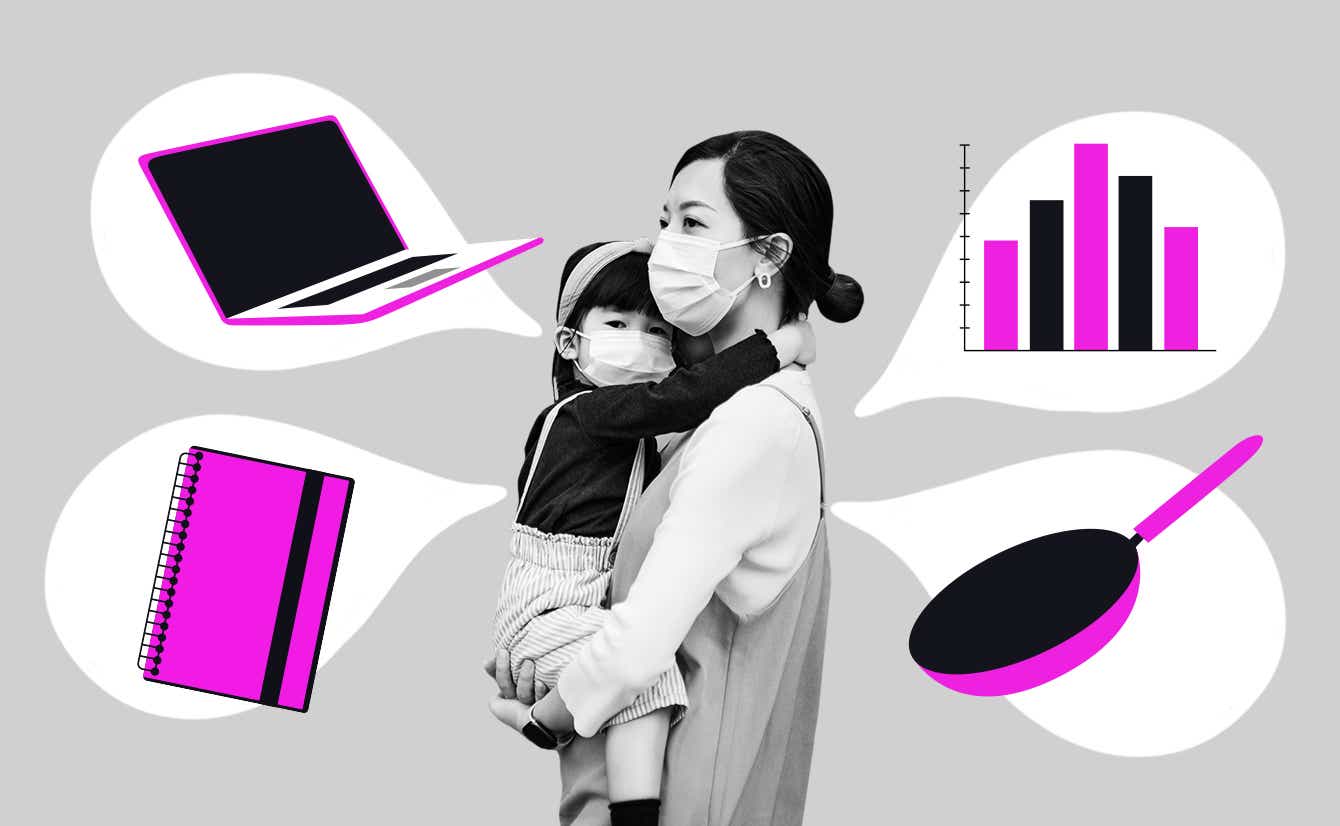It's no secret working women have had it pretty rough lately, but findings from the annual Women in the Workplace report has revealed exactly how much stress they’re actually carrying.
A burnout crisis:
The research is clear — women have been disproportionately affected by the pandemic. A staggering 1.8 million of them have left the workforce, many citing a lack of childcare or the stress of having to shoulder more responsibility at home, like supervising their children’s online learning. Those who have continued to work are feeling overwhelmed. According to the survey, which polled 65,000 workers, 42 percent of women reported burnout — up from 32 percent last year.
Women are stepping up, but going unrecognized:
Female managers are doing more than their male counterparts to help employees navigate work-life challenges and ensure that their workload is manageable. They’re also more likely to speak out against discrimination in the office and are more active allies to women of color, but these contributions have been largely overlooked, women reported.
A moment of reflection:
A third of women surveyed said they had considered quitting or downshifting their careers, and 40 percent said they thought about switching jobs. Many of them are reconsidering what they want out of work and are prioritizing roles that can offer better work-life balance. Some said the pandemic even motivated them to finally take the plunge and launch their own businesses. “My definition of success has changed,” said one woman who left her marketing job to become a high-school teacher.
Is more flexibility the answer?
It wouldn’t hurt. Many women reported that work flexibility would help them reach their career goals, and two-thirds said they want to work remotely at least three days a week post-pandemic (compared to 57% of men).
What can we do?
Considering these numbers and its own helpful data, the Marshall Plan for Moms has outlined not just what these findings mean, but how we can take action to ease the pressure on the most overworked women.
"It’s time to establish infrastructure for mothers to thrive in the workplace, and for their children to succeed in the classroom: paid family leave, universal pre-K, higher wages for caregivers, and so much more," the group's founder, Reshma Saujani, writes. "By passing Biden’s current infrastructure package, Congress has the chance to do just that."













